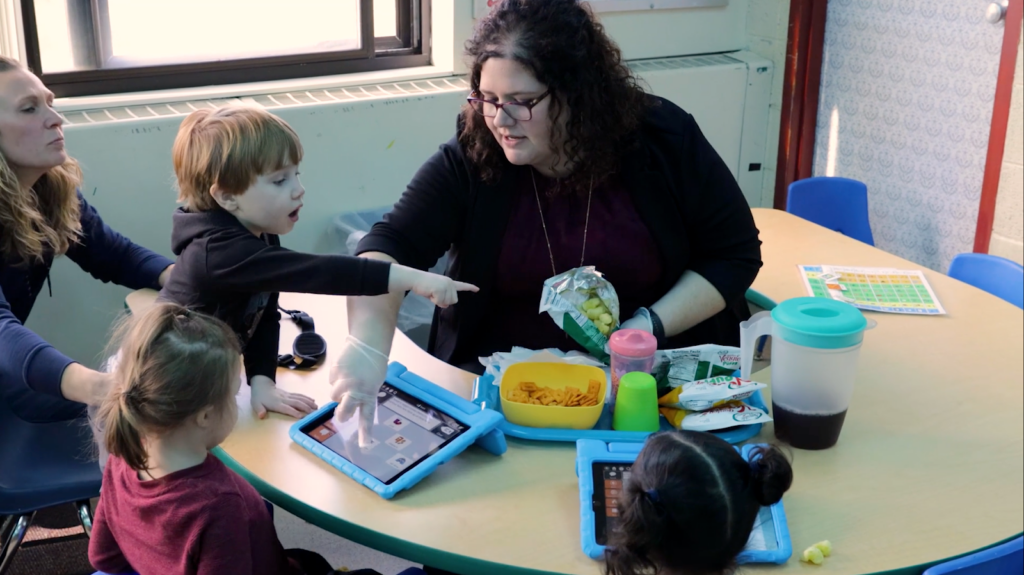
Assistive technology (AT) is used in Michigan school districts to advance individuals with disabilities (Birth to 26 Years). It allows individuals with a range of visual and hearing impairments to Autism Spectrum Disorders to have a more independent and fulfilling experience in and out of the classroom.
Carolyn Parker, a Michigan alternative communication specialist, said, “As educators and people who do the day-to-day work, we strive to keep on top of it and ensure there are items in our library that will help individuals access their curriculum and be independent.”
ATs encompass a range of tools for a range of disabilities. ATs can be medical, but they can also be mainstream technologies like phones and tablets.
“We use the smart board. We use an interactive TV during group times and story time. We have iPads with different apps so the kids can communicate with us back and forth,” said Kelsey Brewer, Michigan special education teacher.
These devices and machines fit into the high-technology category of AT, while ramps, wheelchairs, and braille are considered low-tech or no-tech. Both high and low-tech AT work together to make the educational experience more accessible for individuals with disabilities.
Some ATs are required under the Individuals with Disabilities Education Act (IDEA) so individuals with disabilities can access ATs, such as wheelchairs or voice-activated computers.
Jordan Murray, a Michigan school speech-language pathologist, says the impact of assistive technology in schools is profound.
“We’re seeing individuals have a voice… to say what they think, share how they feel, and advocate for themselves. They share when they’re in pain or the music they like. If you think about communicating what we’d want individuals to share, they can now do that with assistive technology and communication devices.”
About OPTIMISE
OPTIMISE attracts, prepares, and retains diverse and qualified personnel to help advance individuals with disabilities (Birth to 26 years).
The OPTIMISE Task Force, Core Team, and Action Teams work with many partners, including Michigan’s leading education organizations and legislature, to reduce barriers and align licensing for special educators. This work also includes working with all levels of education to accomplish this goal.
OPTIMISE promotes ten professions within Michigan’s special education field, their funding options, and steps to jumpstart a career in special education.
Join a great group of dedicated people who help individuals with disabilities excel.
Go to: OPTIMISE.education



